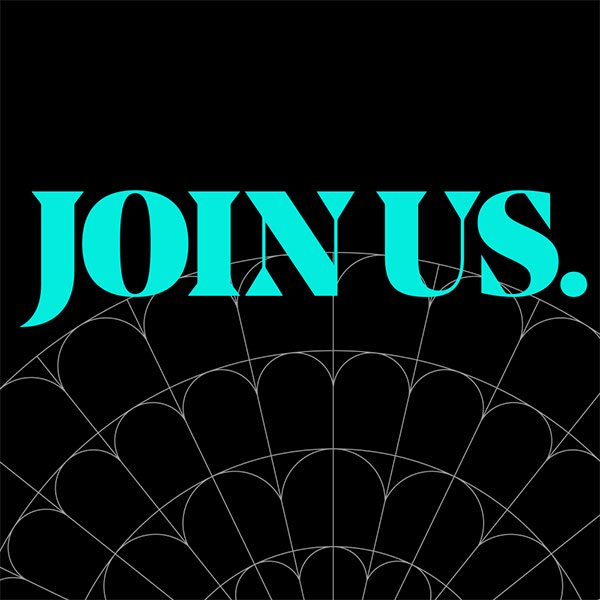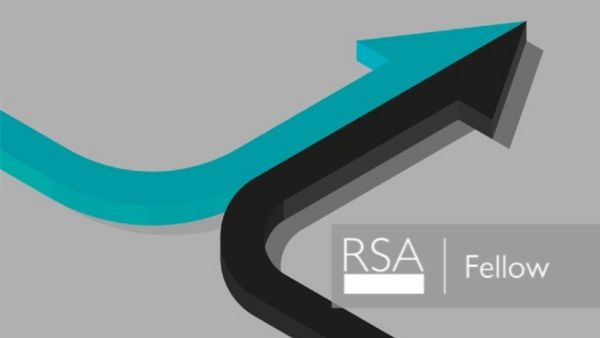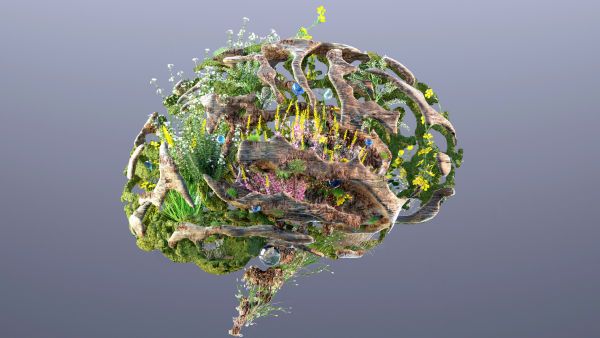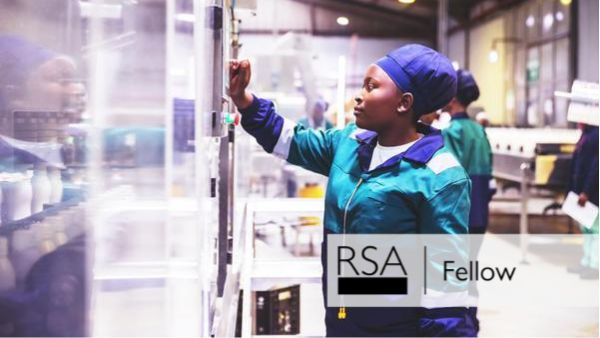Julie Guégan formulated a new way forward, with collaboration at every level fostering a better world for us all.
Almost 20 years ago, I joined the European project, in Brussels, in order to contribute my energy and my expertise, and hopefully to increase its ambition. I was a young Parisian, with a promising career in communication, I had a lot of hope (and probably a bit of naivety) and I was ready to give everything to improve the lives of other European citizens.
But imagine my disappointment when I realised that the only place in Europe in which we could create the greatest of projects – through hearts, minds, and hands – had its lights mostly switched off. The realisation happened just a few days into my work. The European Union – with its high degree of formality, its mode of organisation and its bureaucracy, while epitomising the ideals of Max Weber – had made me see the love and attention I felt I had to offer as something to hide, almost to be ashamed of.
It resonated with me a lot as the child of senior civil servants in France. I had become aware that in my own country love had become cheapened and in many cases a detrimental illusion, exacerbating the situation we now find ourselves in. We all know that our lack of intelligent responsiveness to the Anthropocene era has led us to a state of permacrisis. Meanwhile, we stand passive spectators as the disaster unfolds. So, let’s remind ourselves… whose future is at stake again?
I very quickly transformed myself into a bureaucratic Sherlock Holmes, and started looking for the conditions to operate a necessary transformation. My objective? To make the mini-Europe prosper so that the bigger Europe might prosper, and initiate profound changes in our society, in order to adapt and become more resilient. On my journey, I made an encounter that would impact my life in many ways. I had met collaboration.
Collaboration is the most accomplished form of organisation and the recipe for success of an exceptional civilisation, which holds together in order to leave great gifts for future generations.
The starting point is the Adlerian philosophy, whose key principles of connection and community have appeared and reappeared down the millennia – in the works of Nietszche, Tagore, Ahrendt, Sartre, Kierkegaard, Socrates, Victor Hugo, and the Beatles, to name but a few. While collaboration is for some a utopia, for me it is the most pragmatic vision of all, supported by all these wonderful thinkers, who could tell you even today that only love has the power to move mountains.
Collaboration says that we have to act as one humanity, and that's how we will be able to perform miracles in a world where we are inevitably highly interdependent. When I say miracles, I mean the results of what genuine love can deliver. Let’s no longer be naive. We have to accept that the power of our governmental institutions to reverse the trend is extremely weak. We need outspoken and brave people who can add the pressure needed to make real disruption happen.
What does this mean in practice? I believe the next step is to unleash the leadership of all. The focus must no longer be on structures, processes and rules, but on people and relationships.
A collaborative society would mean that people everywhere feel able to contribute, but also to belong, to feel intelligent, to flourish, to express their power and to love their uniqueness, their diversity. These are powerful and positive emotions and ideas, which can flourish and bear fruit provided we have the right conditions in place (think respect and compassion). We need to re-equip people with skills which we have largely forgotten in this world of mass individualisation and oversimplification, skills such as mastering healthy conflict or the management of chaos and uncertainty.
And so for ten years now, I have explored all the facets of collaboration, and I myself have become a guinea pig, even as an expert in this field. I have learned a lot about how I brought together these fuzzy conversations that will move our civilisation forward and achieve serendipity, the cross-fertilisation of ideas. I master community management, and in particular, I have the experience of having a global collaborative community that can exchange on any subject.
That collaboration extends throughout our world. From parental collaboration to global collaboration, to more collaboration in education, in transport and logistics and in the economy. I see a straight line to a more fulfilling life and the planet.
So much so that my goal is to go all out to bring the value of collaboration to all complex issues and especially our biggest challenges. I am eager to continue this conversation and work towards a new definition of transparency, and towards a system of thinking which resists the kind of reactive and excessive control we have seen at times recently – think the sometimes panicky response during the Covid-19 crisis which saw even the most benevolent leaders negotiating with the keystones of democracy. Our appreciation and creative use of the commons will be critical in every sphere of life, as will a global appreciation that collaboration is not for everyone.
We need to do the following:
Organise conversations that take place everywhere on any topic, the less focused the better. We need to encourage cross-fertilisation; to ensure diversity, between thinkers and doers, at the centre and at the margins, pollinating small global collaboration communities, facilitated by sensemakers from government institutions;
Offer incentives for people to contribute. Make it fun and recognise their efforts. Provide a laboratory to promote a new way of doing society;
Focus on the commons, and set up project teams on mobility, economy, education, health and democracy;
Establish a global collaboration thinktank to challenge the status quo and think outside of the box, ultimately bringing a new holistic dimension;
Develop case studies of global collaboration with a view to facilitating the adoption of new collaborative habits in everything we do, and new approaches to be embedded in the way we do this;
Establish a human wave, made up of psychologists, historians, coaches, philosophers, and other experts in systems thinking, complexity, and compassion-motivation strategies. The objective is to create a force of good, which will reassure, explain, and spread the good words of love and peace on social networks. It should be a priority today to counter the wave of hatred and cowardice that we have seen growing in recent years;
Define a narrative for change and a framework. Set up a ‘culture’ book for an exceptional civilisation, the roadmap towards true global collaboration.
This is the journey I started to promote less than a year ago when I launched a campaign blog to lobby for my ideas. From a dream that I was keen to share, now I am preparing for the new reality with the EU institutions. We will start to show the benefit of collaboration, first at the level of Europe (we need to start somewhere) and then hopefully at the level of the whole globe. I invite all Fellows to contact me whether they want to understand better what I am aiming for and how they could support me to get there.
Julie Guégan, FRSA is a sensemaker, event organiser and blogger, based in Brussels and working in the field of collaborative leadership

Become an RSA Fellow
The RSA Fellowship is a unique global network of changemakers enabling people, places and the planet to flourish. We invite you to be part of this change.
Related articles
-
Levelling up isn’t about North versus South
Comment
Anthony Delaney
The Government’s controversial policy is a huge opportunity to radically rewire the UK, argues Anthony Delaney, but it all has to happen at a local level
-
Mind matters
Comment
Charlie Hertzog Young
Challenging embedded beliefs can benefit mental and planetary health
-
Is levelling up whack-a-mole?
Comment
Keith Harrison-Broninski
The Government’s flagship policy promises a cornucopia of benefits spilling out over the country and enriching us all. There’s just one problem, writes Keith Harrison-Broninski… it can’t possibly work




Join the discussion
Comments
Please login to post a comment or reply
Don't have an account? Click here to register.
Thank you Julie, appreciate your article!